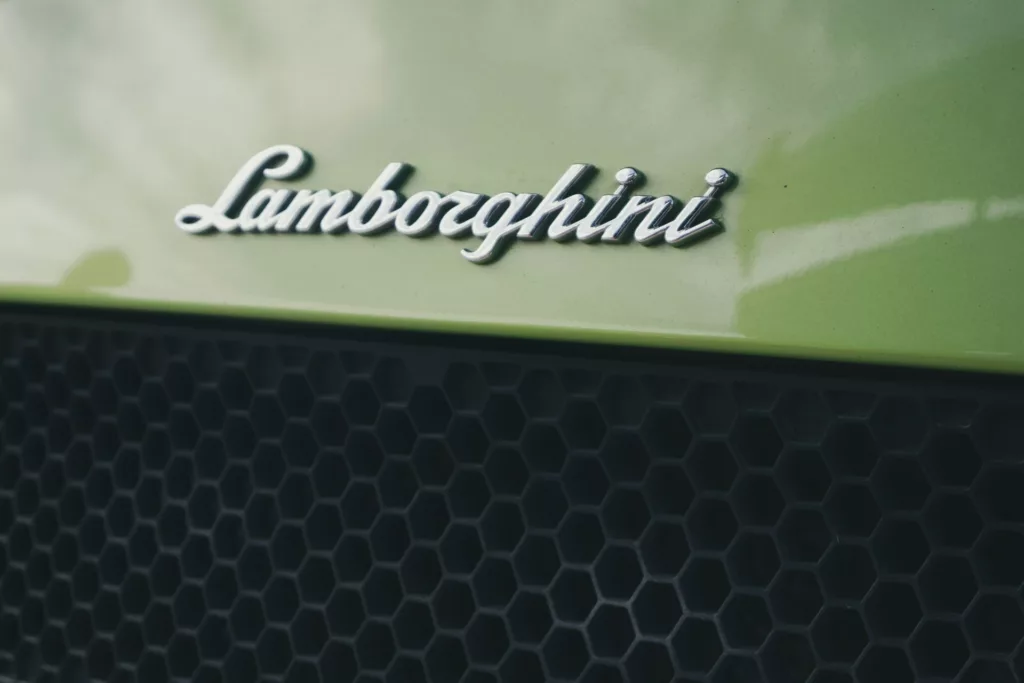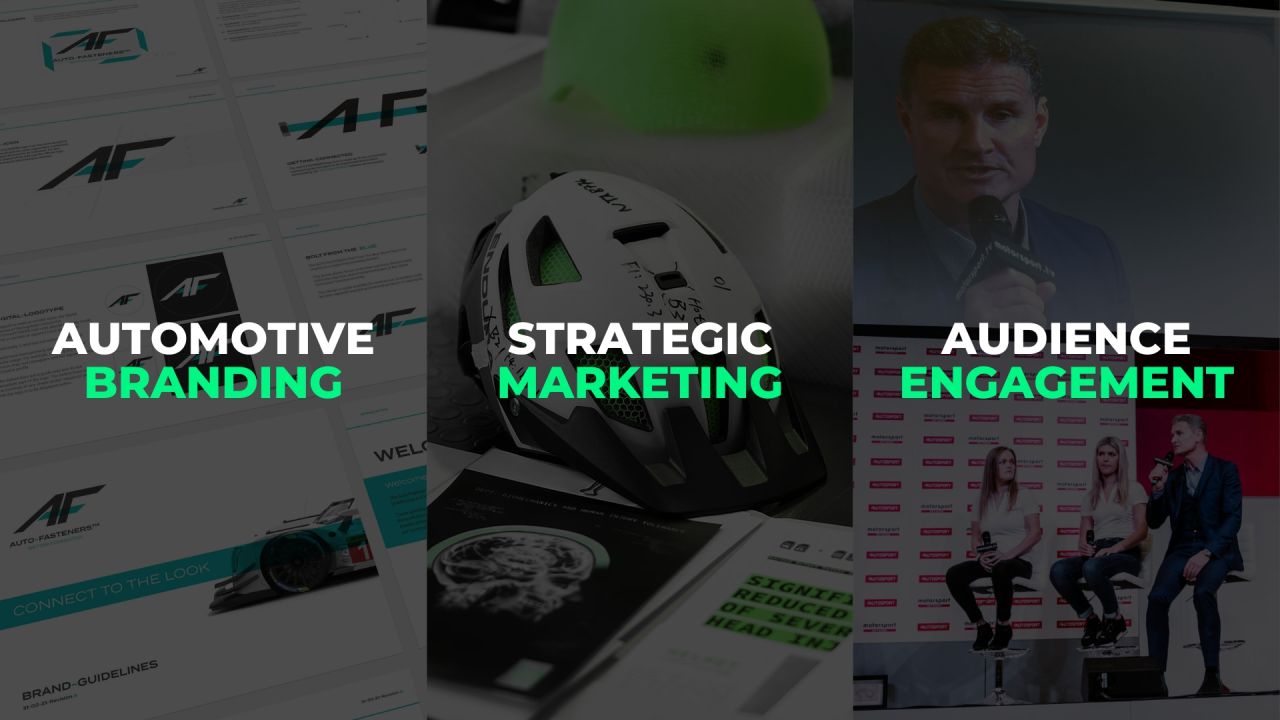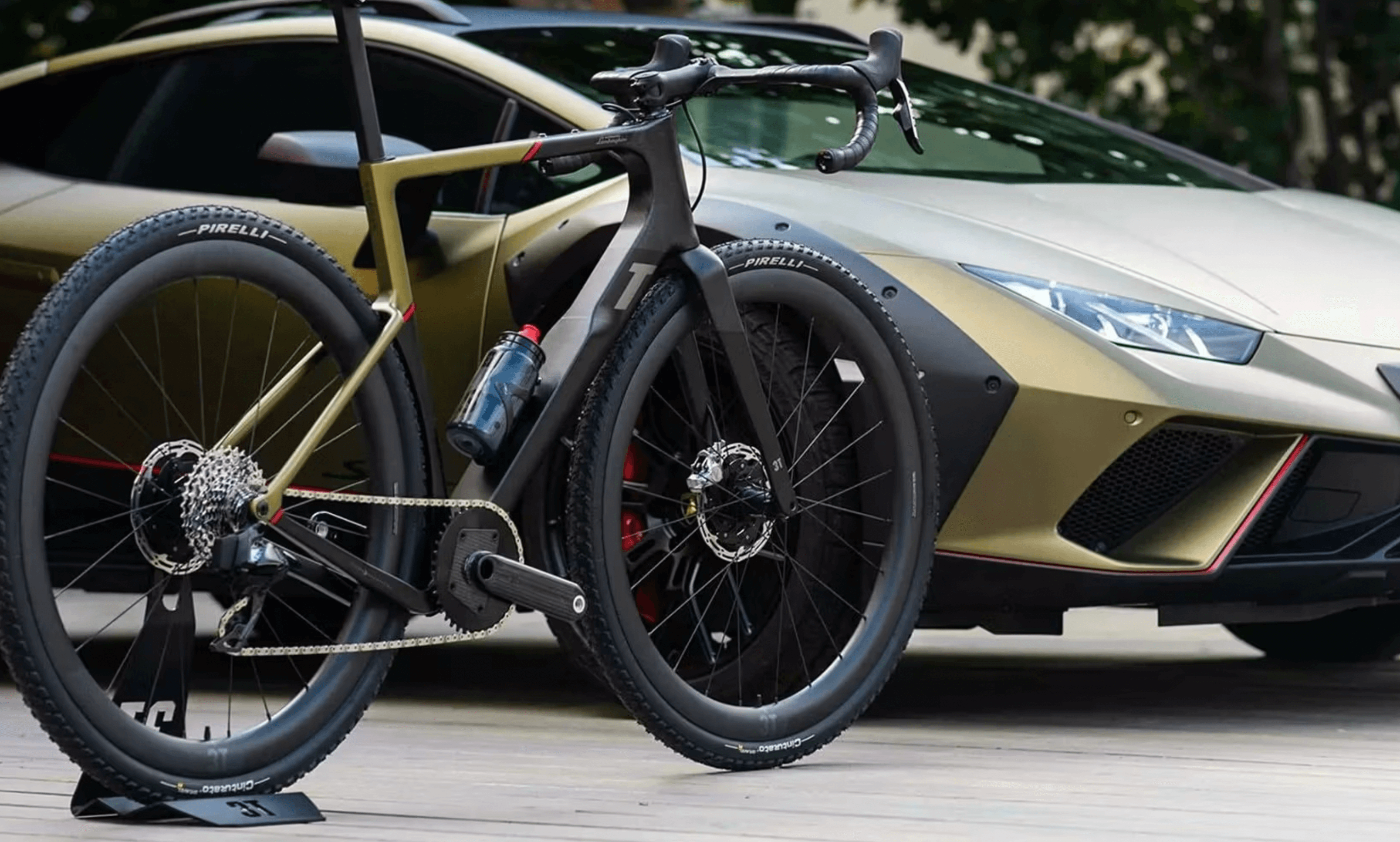In today’s fiercely competitive automotive landscape, successful automotive branding has evolved far beyond mere logos and slogans to become the cornerstone of market differentiation and consumer loyalty.
The power of a well-crafted automotive brand extends from establishing trust and emotional connections with consumers to driving long-term customer loyalty and commanding premium pricing. As the industry faces unprecedented challenges from digitalisation, sustainability demands, and changing consumer behaviours, automotive brands must navigate an increasingly complex branding ecosystem that encompasses traditional marketing, digital engagement, and authentic storytelling to remain relevant and competitive in the modern marketplace.
Introduction to Automotive Branding
What is Automotive Branding?
Automotive branding represents the strategic use of marketing techniques to promote the image and reputation of an automotive brand, involving the development and communication of a unique brand identity that resonates with target consumers and distinguishes the brand from its competitors. This comprehensive approach encompasses far more than visual elements, extending to encompass the entire customer experience, from initial awareness through to post-purchase engagement and advocacy.
Effective automotive branding creates a cohesive narrative that connects with consumers on both rational and emotional levels. It establishes clear expectations about quality, performance, and values whilst building trust through consistent delivery of brand promises. The most successful automotive brands understand that their identity must permeate every touchpoint, from advertising campaigns and social media presence to dealership experiences and after-sales service.

The Importance of Branding in the Automotive Sector
The significance of brand identity in the automotive sector cannot be overstated, as it serves multiple critical functions that directly impact business success. Strong automotive branding helps build recognition and trust, ensuring vehicles are identifiable on the road whilst communicating what customers can expect from a company. In an industry where purchases often represent significant financial investments, consumers rely heavily on brand reputation to guide their decision-making process.
Branding provides crucial differentiation in a crowded marketplace, allowing companies to highlight unique selling points such as innovation, customer service excellence, or sustainability commitments. Furthermore, effective branding drives customer loyalty, with positive brand experiences encouraging repeat purchases and transforming customers into brand advocates who share their experiences with others. This loyalty translates into tangible business benefits, including increased customer lifetime value and reduced acquisition costs.

Key Elements of Effective Automotive Branding
Brand Identity and Image
A robust brand identity forms the foundation of successful automotive branding, encompassing both visual elements and the deeper brand essence that shapes consumer perceptions. Visual consistency across all channels—websites, social media, physical locations, and marketing materials—fosters recognition and builds trust over time. The most effective automotive brands develop distinctive design languages that make their vehicles instantly recognisable, creating immediate associations with quality, innovation, and reliability.
However, brand identity extends far beyond visual elements to encompass the brand’s personality, values, and positioning in the marketplace. Consider iconic brands like Tesla, which has built its identity around sustainability, cutting-edge technology, and luxury, creating a brand that sells not just vehicles but a vision of the future. Similarly, BMW’s positioning as “the ultimate driving machine” immediately conveys performance and luxury, attracting consumers who prioritise the premium driving experience.
The emotional resonance of brand identity proves particularly crucial in automotive marketing, as vehicles often represent more than mere transportation—they symbolise freedom, achievement, status, and personal identity. Successful automotive brands understand these deeper psychological connections and craft identities that align with their target audience’s aspirations and values.
Brand Messaging and Communication
Effective brand messaging in the automotive sector requires a sophisticated understanding of target audiences and the ability to communicate complex value propositions in compelling, accessible ways. The most successful automotive brands develop clear, consistent messaging that resonates across all touchpoints, from advertising campaigns to customer service interactions. This messaging must authentically reflect the brand’s values whilst addressing the specific needs and desires of target consumers.
Modern automotive brand strategy increasingly emphasises storytelling as a powerful tool for creating emotional connections with consumers. Volvo’s emphasis on safety tells a compelling story that resonates with families, whilst Jeep’s focus on adventure appeals to consumers seeking freedom and exploration. These narratives transcend product features to create meaningful relationships between brands and consumers.
Digital transformation has fundamentally changed how automotive brands communicate with their audiences. Social media platforms, influencer partnerships, and content marketing now play crucial roles in brand messaging strategies. Successful brands leverage these channels to create authentic, engaging content that builds communities around their products whilst maintaining consistent messaging across all platforms.

Strategies for Successful Automotive Branding
Utilising Social Media
Social media has emerged as an essential component of modern automotive advertising, offering unprecedented opportunities for customer engagement and community building. Platforms like Facebook, Instagram, and TikTok provide sophisticated targeting capabilities that enable automotive brands to reach specific demographics with customised content. The visual nature of these platforms proves particularly well-suited to automotive marketing, allowing brands to showcase vehicles through compelling imagery and video content.
Successful social media strategies in automotive branding focus on creating authentic engagement rather than simply broadcasting promotional messages. Brands that respond to comments, share user-generated content, and participate in conversations build stronger relationships with their audiences. The ability to provide real-time customer service through social media platforms also enhances the overall brand experience whilst demonstrating commitment to customer satisfaction.
Leveraging Influencer Partnerships
Influencer partnerships have become increasingly powerful in automotive marketing, with 88% of consumers trusting online recommendations as much as face-to-face recommendations. Automotive brands successfully leverage influencer marketing to humanise their products, create aspiration, and increase engagement with target audiences. The key lies in selecting influencers whose values and audience align with the brand’s positioning and target market.
Successful automotive influencer campaigns focus on authentic experiences rather than overt advertising. For example, Nissan’s #TitanAdventure campaign invited truck owners and influencers on a genuine adventure, creating organic content that felt authentic and engaging. BMW’s #THE1challenge on TikTok successfully reached younger audiences by partnering with popular creators who naturally aligned with the brand’s innovative positioning.

The Role of Consumer Perception in Automotive Branding
Understanding Consumer Behaviour
The automotive customer journey has fundamentally transformed in recent years, with digital channels now playing crucial roles at every stage from awareness to purchase decision. Modern consumers conduct extensive online research before visiting dealerships, making digital brand presence and reputation management more critical than ever. Understanding these behavioural shifts enables automotive brands to develop more effective branding strategies that meet consumers where they are.
Consumer behaviour in automotive purchasing is heavily influenced by emotional factors, with research showing that emotions significantly impact decision-making processes, often outweighing purely rational considerations. Successful automotive brands recognise these psychological drivers and craft branding strategies that appeal to both emotional and rational motivations. The rise of online reviews, social media discussions, and influencer recommendations has also increased the importance of authentic brand experiences and genuine customer satisfaction.
Creating Emotional Connections
Emotional marketing has proven particularly effective in the automotive sector, where purchases often represent significant personal and financial commitments. Successful automotive brands understand that vehicles serve as extensions of personal identity, symbols of achievement, and expressions of values. By tapping into emotions like pride, nostalgia, adventure, and belonging, brands create deeper connections that transcend purely functional product benefits.
The psychology behind emotional connections in automotive branding often relates to fundamental human desires for freedom, security, status, and self-expression. Brands like Jeep successfully appeal to desires for adventure and independence, whilst luxury brands like BMW and Mercedes-Benz tap into aspirations for success and sophistication. These emotional triggers, when authentically integrated into brand messaging and experiences, create lasting bonds that drive brand loyalty and advocacy.

Case Studies in Automotive Branding Success
Successful Automotive Brands and Their Strategies
Tesla’s remarkable rise to dominance exemplifies the power of strategic automotive branding that aligns with contemporary values and aspirations. Tesla’s brand strategy centres on sustainability, innovation, and luxury, positioning the company as more than a car manufacturer—it sells a vision of the future. The brand’s commitment to sustainable energy, coupled with cutting-edge technology and premium positioning, has attracted a loyal following of environmentally conscious consumers who view Tesla ownership as a statement of their values.
BMW’s enduring success demonstrates the effectiveness of consistent brand positioning over decades. The “ultimate driving machine” positioning has remained relevant by continuously evolving to incorporate new technologies whilst maintaining core brand values of performance and luxury. BMW’s marketing strategy exemplifies how premium automotive brands can blend heritage with innovation, creating aspirational appeal whilst delivering tangible product benefits that justify premium pricing.
Volvo’s transformation from a safety-focused brand to a comprehensive luxury proposition illustrates successful brand evolution. Whilst maintaining its safety heritage as a foundation of trust, Volvo has strategically expanded its brand positioning to encompass innovation, sustainability, and human-centric design. The brand’s commitment to becoming fully electric by 2030 demonstrates how sustainability can be integrated into brand strategy to appeal to contemporary consumer values whilst differentiating from competitors.
Lessons Learned from Branding Failures
Automotive branding failures provide valuable lessons about the importance of cultural sensitivity, authentic messaging, and understanding target audiences. Chevrolet’s notorious “Nova” campaign in Latin America, where the car’s name translated to “doesn’t go” in Spanish, highlights the critical importance of cultural adaptation in global branding strategies. This failure demonstrates that successful brands cannot simply translate existing campaigns but must develop culturally relevant approaches for different markets.
Ford’s Edsel disaster of the late 1950s illustrates the dangers of overhyping products and ignoring market research. Despite conducting extensive consumer research, Ford executives dismissed findings and created unrealistic expectations that the final product could not meet. The failure demonstrates that authentic branding must be grounded in genuine product benefits rather than marketing hyperbole, and that consumer insights must inform both product development and marketing strategies.
Volkswagen’s “Dieselgate” scandal represents one of the most damaging branding failures in automotive history, demonstrating how dishonesty can irreparably damage brand trust. The scandal highlights that authentic branding requires transparency and ethical practices, as deceptive marketing inevitably leads to far-reaching consequences that extend beyond immediate financial costs to long-term reputation damage.
Future Trends in Automotive Branding
Impact of Technology and Innovation
Artificial Intelligence and advanced analytics are revolutionising automotive advertising strategies, enabling unprecedented personalisation and efficiency in brand communications. AI-powered tools now facilitate content creation, customer segmentation, and predictive analytics, allowing automotive brands to deliver highly relevant, personalised experiences at scale. However, successful implementation requires balancing technological capabilities with authentic human connections that preserve brand personality and emotional resonance.
Augmented Reality (AR) and Virtual Reality (VR) technologies are creating immersive brand experiences that transform how consumers interact with automotive brands. These technologies enable virtual test drives, customisation experiences, and interactive product demonstrations that enhance engagement whilst reducing traditional barriers to purchase. Forward-thinking automotive brands are leveraging these innovations to create memorable brand experiences that differentiate them from competitors whilst providing practical value to consumers.
The Shift Towards Sustainability
Sustainability has evolved from a niche concern to a mainstream expectation, fundamentally reshaping automotive branding strategies across the industry. Consumers increasingly prioritise environmental responsibility in their purchasing decisions, making sustainability credentials essential for brand competitiveness. Successful automotive brands are integrating sustainability into their core brand identity rather than treating it as an add-on, demonstrating genuine commitment through concrete actions and transparent reporting.
The rise of electric vehicles represents both an opportunity and a challenge for automotive branding, as traditional brand associations with performance and luxury must evolve to encompass new value propositions around sustainability and technology. Brands like Tesla have demonstrated that environmental responsibility and premium positioning can coexist successfully, whilst established manufacturers are reimagining their brand identities to remain relevant in an increasingly electrified future.
Conclusion
The landscape of automotive branding continues to evolve rapidly, driven by technological advancement, changing consumer expectations, and increasing environmental consciousness. Successful automotive brands in the modern era must master the art of creating authentic emotional connections whilst leveraging digital technologies to deliver personalised, engaging experiences across multiple touchpoints. The most effective brand strategies balance heritage and innovation, maintaining core brand values whilst adapting to contemporary market demands and consumer behaviours.
The importance of brand identity and customer engagement in driving business success cannot be overstated, as evidenced by the remarkable achievements of brands like Tesla, BMW, and Volvo, which have successfully differentiated themselves through compelling brand narratives and consistent execution. Conversely, branding failures like Chevrolet’s Nova, Ford’s Edsel, and Volkswagen’s Dieselgate scandal illustrate the severe consequences of cultural insensitivity, overpromising, and dishonest practices. These lessons underscore the critical importance of authentic, transparent, and culturally sensitive branding approaches.
Looking towards the future, automotive brands must navigate an increasingly complex landscape characterised by sustainability imperatives, digital transformation, and evolving consumer expectations. The integration of AI, AR/VR technologies, and sophisticated data analytics offers unprecedented opportunities for personalisation and engagement, whilst the shift towards electrification requires fundamental reconsideration of traditional brand positioning and messaging. Success in this environment demands brands that remain agile and responsive whilst maintaining the authentic emotional connections that drive brand loyalty and advocacy.
Ultimately, the future of automotive branding belongs to those organisations that can successfully balance technological innovation with human-centred design, sustainability with performance, and global reach with local relevance. As the industry continues to transform, the brands that thrive will be those that understand automotive branding is not merely about selling vehicles—it’s about creating meaningful relationships that transcend the transactional to become genuine partnerships in consumers’ life journeys.
















